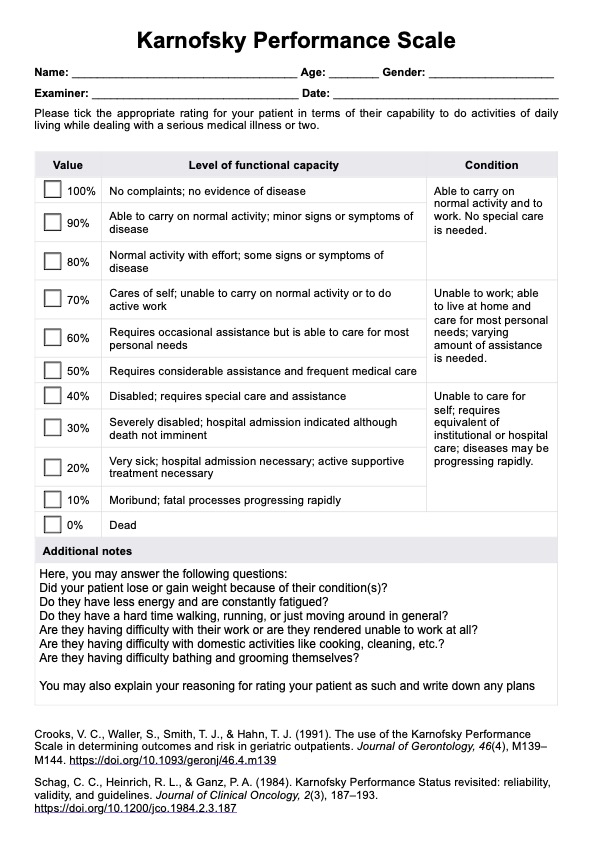The Karnofsky Performance Scale (KPS) is a standardized tool used by healthcare professionals to assess a patient's functional status and ability to perform daily activities, particularly in the context of serious medical conditions like cancer. It assigns a score from 0 to 100, reflecting the patient’s overall condition and need for assistance.

Karnofsky Performance Scale
The Karnofsky Performance Scale helps you designate a patient's level of function. Use it in your assessment of your patients' capabilities.
Karnofsky Performance Scale Template
Commonly asked questions
A low Karnofsky score, typically under 50, indicates significant disability and frequent medical care needs, often correlating with a reduced life expectancy. However, life expectancy varies depending on the underlying condition, its progression, and available treatments.
In palliative nutritional care, the Karnofsky index helps assess a patient’s functional capacity and nutritional needs. It guides interventions by evaluating how the patient’s physical status impacts their ability to eat, maintain weight, and benefit from supportive care strategies.
EHR and practice management software
Get started for free
*No credit card required
Free
$0/usd
Unlimited clients
Telehealth
1GB of storage
Client portal text
Automated billing and online payments











